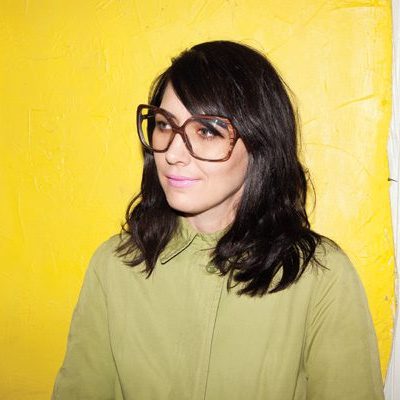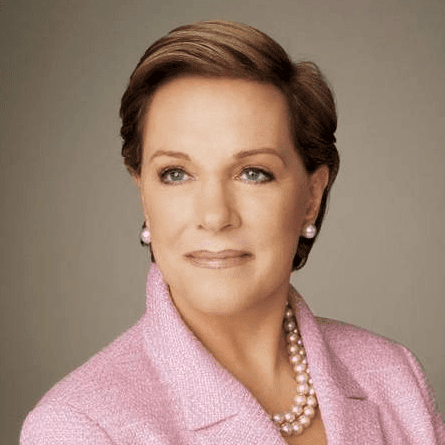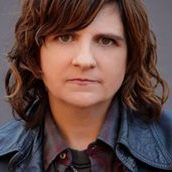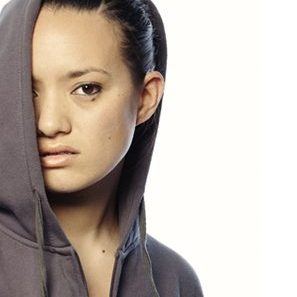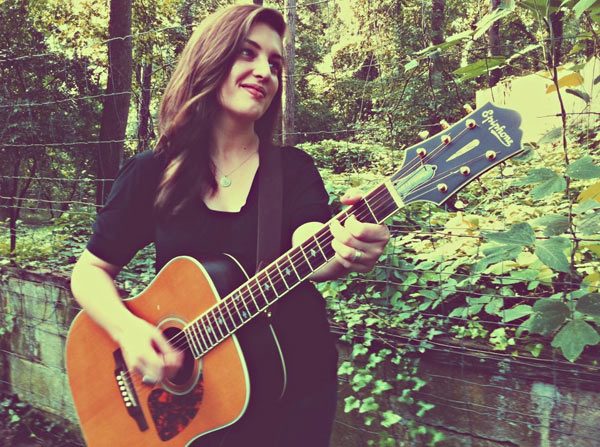
Singer-songwriter Amy Andrews tours to save feminist bookstores.
Baltimore native, Georgia resident and fierce feminist Amy Andrews is raising awareness about women’s spaces, their impact on the queer community and the plight of feminist bookstores. Andrews has taken North America by storm, travelling across the United States and Canada, playing at feminist bookstores and centres to raise money and awareness about the need for these safe spaces. Andrews’ passion for activism extends beyond feminist bookstores. Ahisma House, an organization that protects people and their animals from domestic violence, the American Foundation for Suicide Prevention, Songs for Kids Foundation and North Star Fund, a nonprofit benefitting those impacted by Hurricane Sandy, are just a few of the organizations she has supported through her benefit shows.
Not only is Andrews a committed activist, but she’s also a talented singer. Her sounds are sometimes bluesy or indie-jazz, but they’re always strong, seductively smooth and full of emotion. Trained in classical performance and musical theatre, Andrews is a folk singer-songwriter who cannot be easily boxed into a single genre. She’s a talent that’s not to be missed, and you can catch the end of her Feminist Bookstore Tour in Tucson, Ariz.; Gainesville, Fla.; and Provincetown, Mass.
What were your musical influences growing up?
I grew up listening to a lot of Sinatra and standards, and country music. I started doing musical theatre when I was 6. I thought I was going to be Bette Midler. I auditioned with one of Carol Burnett’s songs from Annie when I was like 6 years old. I think it was that “Little Girls” song, which is super sexual. So I don’t know what the directors were thinking when they cast me [laughter].
How did you transition from a classical performer to a folk singer?
I ended up going off on this more classical path, and I really enjoyed that, but I think I was kind of burned out by the end of college. I felt such a disconnect with the audience up there on stage. It just felt so formal. I went to a [Indigo Girls] show where this woman walked up to the foot of the stage while they were singing and threw a chocolate Easter bunny at them like lovingly threw it at them. And they paused and acknowledged it, and sang to her, and told a joke and then went back to playing. And I thought that was so awesome that even in this big venue they were interacting with their audience in that way. And I was just like, I really want to try that. That seems like so much fun to be able to talk to people like that, and I love to do that. I love to talk to people from the stage. So, I ended up doing that after I graduated.
.jpg)
What motivated you to create the Feminist Bookstore Tour?
The plight of independent bookstores, and especially feminist bookstores, is not unknown to most folks, but I was really shocked to find that there is just barely a dozen still in existence in all of North America. I really want this tour to be a great event for these stores. It comes at no cost to them and serves only to bring them additional business and publicity.
What impact do feminist bookstores have on their communities?
The programming, in addition to the protective space and sense of community that these stores and centres bring to our towns, is, I think, absolutely invaluable. I spoke with a press person yesterday who confided in me that she lost her circle of support when she came out in the mid-’80s and that the first place she felt OK was when she got up the nerve to go into a feminist bookstore in Boston, now closed, and peruse the lesbian lit section. I asked her if she stood taller and stronger as she passed the threshold of the store, and she began to nod tearfully.
.jpg)
How important is it to the queer community to have these safe spaces?
I remember being maybe 14-years-old, and ordering this book that I knew had some sort of gay subtext. I remember going to Barnes & Noble to pick it up, going to the counter, and saying my name and having them hand the book over the counter to me. Having them hand me the book and seeing that the cover art was a girl with a tattoo of two female symbols interlocking and then a heart with the word teacher thought it – I was so horrified that I had just been outed by picking up this book from Barnes & Noble. And I said, “Oh, this isn’t right. This isn’t mine.” And they were like, “Oh, OK, there must have been an error.” And they just took the book back.
That would have never happened in a feminist bookstore. I probably would have walked in, sat down and read the book, or bought the book, but I wouldn’t have felt that sort of—I’m out in the real world that’s full of people that might judge me, or might hurt me or might hurt me even with just their words, or looks or any sort of judgment that they might cast upon me as a young girl just wanting to read a book that has a protagonist that I associate with. Do you know what I mean?
There’s still a need for safe spaces. To just say that you can come here and completely relax and be however you identify, whoever you are—you can come into this space and feel that. I feel like there’s still a need for that, and I hate to see these places fold up. (amyandrewsmusic.com)

